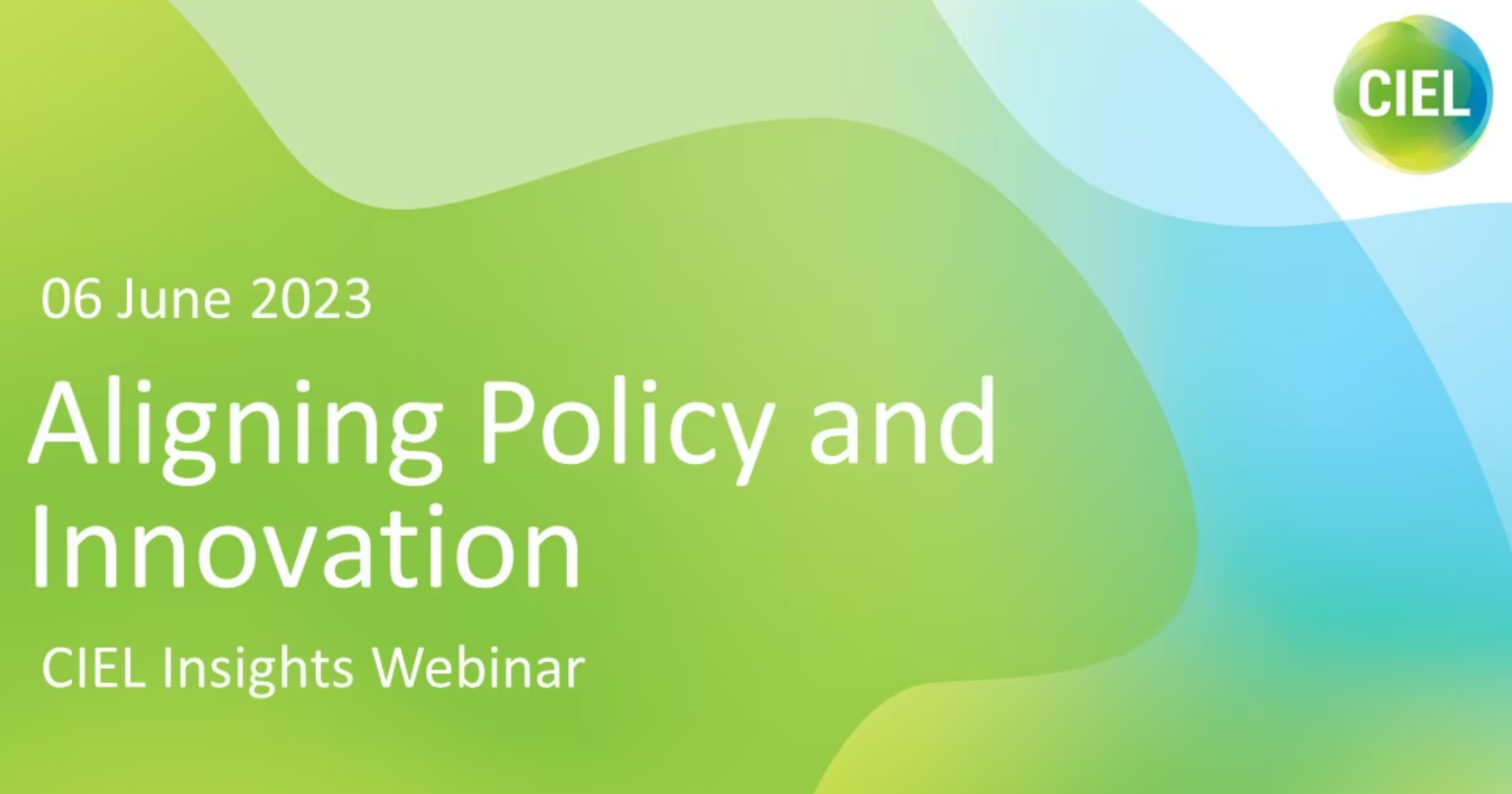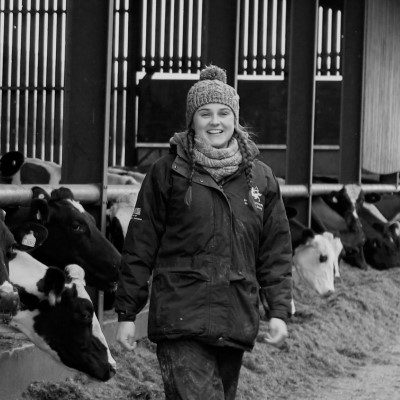CIEL | Blog: Regulation is not the enemy!
Dr Annie Williams

The CIEL Insights June webinar was all about aligning policy and innovation. Policy and regulation are often seen as the enemy of innovation, but the webinar explored how we can start to work with regulators rather than against them.
The panel was made up of experts from across the sector: James McCulloch, Agricultural Industries Confederation (AIC); Heidi Hall, Anpario; and Ben Pegg, Vitec Aspida. Each explored barriers to innovation, how we can engage with policy and regulation early in the innovation process, and shared some top tips on navigating the regulatory landscape during the innovation process.
Before joining CIEL, I worked in R&D in the feed sector and navigating regulation was never my favourite task. When conducting research, it often feels like you’re faced with lots of red tape. But during the webinar, James highlighted the reasons why we have this regulation in place; to maintain a safe, secure food supply chain, and, in relation to most CIEL Members, to sustain animal health and welfare.
Ben made the important point that the standards of UK regulation are globally recognised, and this is something we should be proud of, but we need to be careful that regulation is dynamic and does not impair innovation. He suggested that the speed of change of UK regulation could become an issue and other panellists agreed with this. It was suggested that there is a resource issue within the regulators and we need more people to speed up to process of regulatory approvals and ensure the UK remains competitive in a global market. This is a frustration that is being felt across the sector and certainly something I’ve experienced myself. James suggested that we can also learn from other markets. The risk-based approach to regulation, for example as used in Australia, could add clarity to regulatory requirements and speed up the process.
Another idea to help innovators navigate the process was to have an ‘expression of interest’ service where you could put an idea forward and then speak to the regulatory authority about the criteria your innovation and research programme needed to meet to increase the chance of approval. This could certainly help remove some of the mystery around regulation and provide innovators with some more clarity. I know from experience that one of the problems is knowing which regulatory body you need to apply to, so this idea would also help innovators in this regard.
There was some great advice from the panellists, particularly for those new to working in this sector. The top tip is to engage with the regulators early in the innovation process so that you can start to work collaboratively with them, and this may also drive the direction of your research in a way that makes it quick to gain commercial viability. It was also suggested there are lots of people in the industry willing to help, but the earlier these connections are made, the easier it is to engage with them along the process.
Top Tips for Success
- Engage early with the regulators – they can help inform your innovation process and mitigate any bumps in the road by identifying them early.
- Ask for help! This could be from CIEL, another of the Agri-Tech Centres, or other organisations set up to help you.
- Collaborate – there is strength in numbers. Presenting more than one set of data to the regulators can often aid your case, particularly presentation of global datasets. A unified voice helps when in talks with government.
- Show the bigger picture – put yourself in the shoes of the regulator. If you were presented with a new innovation in an area you’re not familiar with, what evidence would you like to see?
Missed the webinar and want to catch up? CIEL Members can watch the recording on the Member area of the website


Dr Annie Williams, Business Development Manager
Annie is the first-point of contact for existing CIEL Members and for bringing new Members on board who are focussed on collaborative research. She’s on hand to help Members identify new funding opportunities, build partnerships around those opportunities, and transform ideas into active projects. Annie’s valuable combination of commercial and research experience is matched by her enthusiasm for driving the livestock industry forward.







